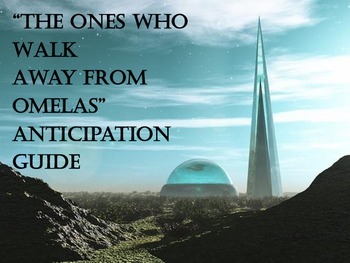

This final point would inevitably involve massive guilt. These ranged from walking away, walking away and freeing the child, and being unable to walk away due to materialistic values. Question two: We had many different opinions. – There’s no point to material happiness as shown by the people that leave.

music rather than an inner happiness that idividuals can create for themselves. 6)- The happiness that has been described is very material i.e. Despite the fact that it is very hypothetical, we can apply it to contemporary ethical and moral issues. wouldn’t sacrifice a family member.5)Thought provoking story. Can’t apply a set of moral guidelines for personal bennefit, i.e. (greatest good for the greatest number)- Moral dilema of which child to pick. Acts/omissions barrier2) Majority opinion to leave town – If we couldn’t change the situation then we wouldnt be prepared to stay and accept it.- By leaving there would still be a feeling of guilt.3) – We live in life of luxury, while there are people starving around the world or living on the streets.- We sacrifice a small number of soldiers to serve in wars for the benefit of a whole country.- Animal testing.4)- To sacrifice one child to cure AIDS would be a small price to pay. Other RPE students (and indeed anyone else) are welcome to join in here!ġ) Utilitarian. Please use the ‘comments’ feature of the blog to respond to these questions (and make any other comments others that occur while reading or reflecting…) In Le Guin’s description of the city of Omelas (which is striking), what do we learn of her view of what the Good life consists of?.Is the contrivance of the story useful – do such exmaples help our moral thinking?.Would it be worth the life of one innocent child to free the world from, say, AIDS?.In what way do we share the dilemma of the people of Omelas in our current economic and political world?.What is the nature of the ethical problem here? How is it linked to the theories we have been looking at in class?.I would like you to look at the story and consider your response in a number of ways…. In EZ205 (Ethics and Language), we have covered a number of ethical theories, and I wanted to raise some of the related issues with the class. Note: If you are a student looking at this to help with a paper/essay on the Omelas short story – that is great, we hope something here helps – but be sure to give a reference – and send me an e-mail to let me know if you find the material useful.ĭave W: Semester (in RPE101, Philosophical and Ethical Arguing) we used the Ursula Le Guin short story The Ones Who Walk Away from Omelas to discuss a number of ethical concerns that we were going over in class.


 0 kommentar(er)
0 kommentar(er)
